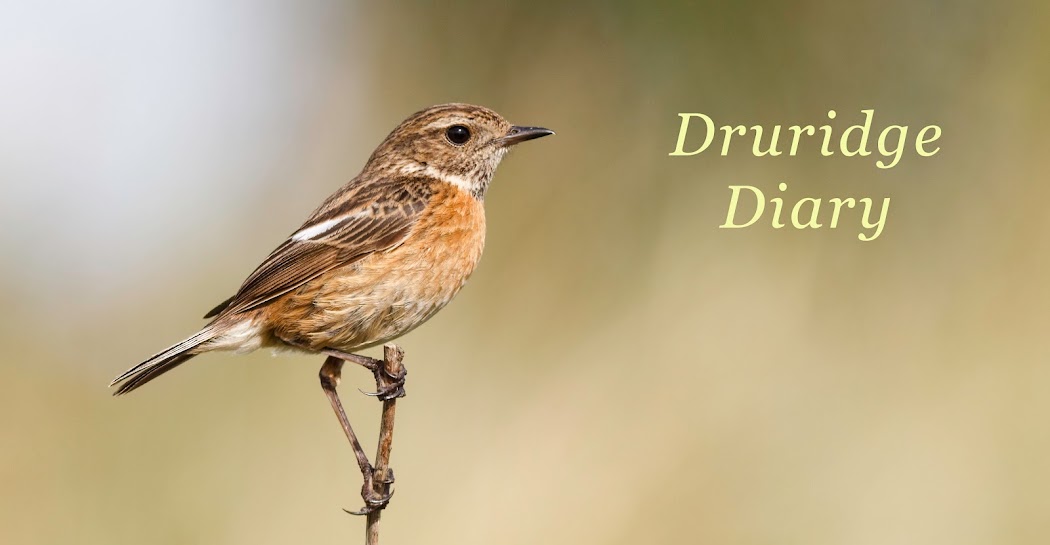As October slips into November, Autumn slips into winter and we all slip back into Coronavirus lockdown the chance of finding an autumnal patch mega slip away too.
With a strong s'westerly wind today we had a taste of what's to come, winter birding at Druridge feels like a slog sometimes. Once the leaves and berries have gone from the trees there's nothing to hold passerines and it often takes a long, cold snap to bring much change.
Making the most of the clocks going back and an extra hour of daylight before work, I've been out on the patch every morning before work this week. Mostly just checking the bushes with the occasional wander through the dunes north of the turning circle. It's been windy from the west or south-west since last weekend and gloomy so little to report and even fewer photos!
Monday
Still a lot of pink-foots with 1900 in the front field. A small influx of thrushes with Blackbird being notable in number (13) and a Great-spotted Woodpecker. Some finch movement with eight Crossbill going south, 12 Lesser Redpolls could've been local birds. Full list
Tuesday
Two Ruff were on the 'Front Field' with 330 Golden Plovers and 180 Lapwing. 18 Whooper Swans flew south in two groups. These were the start of an obvious influx - I counted 67 over Warkworth Links later in the morning.
 |
| Whoopers, south bound in a row |
Friday
There were about 1300 Pink-foots in the Front field this morning. Three Fieldfare came over as I walked through the dunes north of the turning circle. There is still a big finch flock in the dunes with Reed Bunting and Tree Sparrows but I've not seen (or heard) the Twite with them yet that others have. They are mobile mind and the Goldfinches have moved more into the bushes, feeding on Alder cones. It was nice to bump into ADMc for a catch-up. Full list
Saturday
Janet and I had a good walk around the patch. 27 Fieldfares came 'in-off' including a single group of birds. It was very windy and we didn't see much more of note. Full list
 |
| Spindrift |
 |
| It was so windy, it blew these people's feet off! |
With reports of more Fieldfares and some seawatching, I went back in the afternoon for a look on the sea at high-tide. I started going through the Scoter flock and soon had my first Fieldfares - it was amazing to see them flying over the Scoters and following them until they made landfall. They were the first of 138 that I counted, they were still coming in when I left as darkness fell - Amazing! That was just what I saw, in two hours, looking in one direction in an eight-mile bay. How many must've come in?
There were smaller thrushes too, Blackbird and Redwing being identifiable until the decreasing light made them just shapes. A group of 14 Starling came in too, lower than the thrushes, flying just over the water.
There were two Velvet Scoter with about 600 Commons and strangely 10 Shoveler on the sea, one drake, the rest of them looked like ducks and they had two Teal in tow. Otherwise 15 Red-throated Loons, two Kittiwake and handful of Auks were noteworthy. Full List
 |
| My best attempt at photographing in-bound Fieldfares. |
Sunday
Janet and I braved the wind once more, between the bands of rain. The highlight was a Lesser Whitethroat. A November Lesser Whitethroat - you don't get many of them! This year has been far and away my best year for Lesser Whitethroats at Druridge, they bred, which is rare and autumn passage has been the best ever. Full list
 |
| Roe Doe. There are so many Roe Deer at Druridge now. |
 |
| Pink-footed Goose on it's own. A rare sight! |

No comments:
Post a Comment